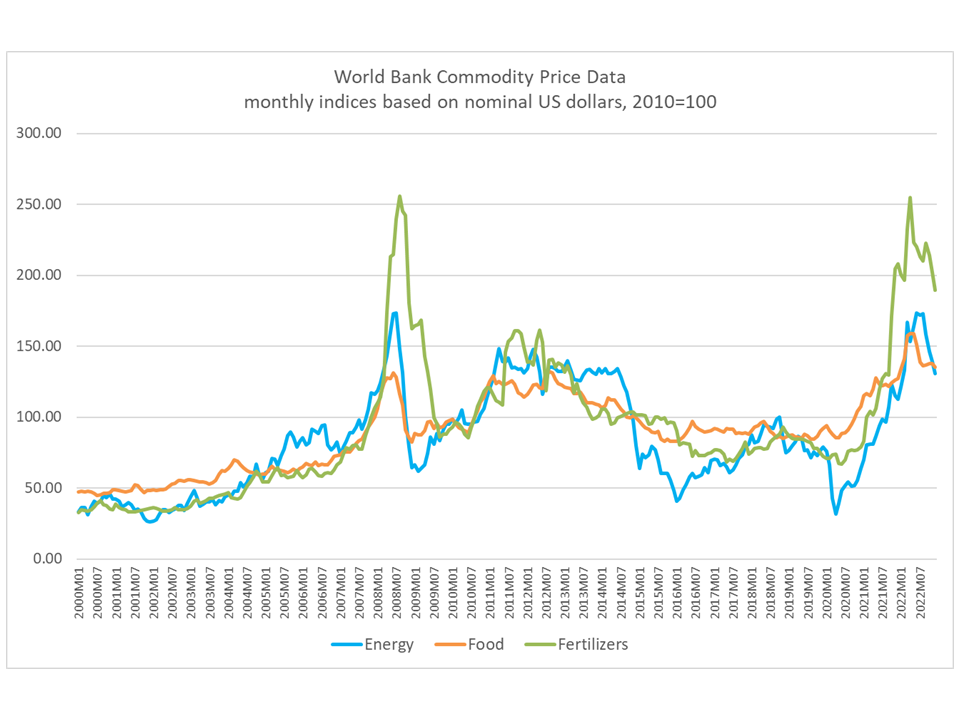Pick Up
698. Challenges to Fertilizer Availability

On January 17, the CEO of Yara International, one of the world's largest fertilizer companies, reportedly accused the Russian president of weaponising food and causing the global fuel, fertilizer, and energy crisis, as many countries rely on Russian fertilizer for food production. Russia is the world's largest producer of fertilizer and fertilizer feedstock.
Russia is one of the largest exporters of fertilizers and chemicals used in fertilizer production, but Russia's invasion of Ukraine in February 2022 has sent natural gas prices soaring and fertilizer production prices to record highs, resulting in higher food prices.
A January 5 World Bank blog noted that while fertilizer prices have recently calmed compared to early 2022, they remain at historically high levels and availability remains a challenge. According to the blog, the recent drop in prices reflects farmers' reluctance to use fertilizer in the face of higher prices, and notes that the following factors have also cast a shadow over the industry
The rising price of natural gas, a raw material for nitrogen fertilizer, has forced Europe to reduce its ammonia production capacity by 70% as of October 2022. However, raw material prices have recently calmed down, partly due to an increase in liquid natural gas imports and forecasts of a milder winter, and this is expected to lead to a resumption of nitrogen fertilizer production.
After Russia's invasion of Ukraine, the EU and the US imposed sanctions on Russia and Belarus. Although the food and fertilizer sectors were exempted to avoid negative impact on global food security, potash exports from Belarus dropped 50% due to restrictions on passage through EU territory and other factors.
Under the supply uncertainty, China extended fertilizer export restrictions until the end of 2022 to secure fertilizer for domestic use, and DAP exports from China fell 55% by October 2022, while urea exports dropped 60%.
Compared to a temporary disruption in food supply, a spike in input prices may cause farmers to change their behavior, such as reducing fertilizer use or growing alternative crops, and may cause medium-term uncertainty in food productivity and food supply in general. It is important to keep a close watch on the various factors affecting food security.
Contributor: IIYAMA Miyuki (Information Program)
